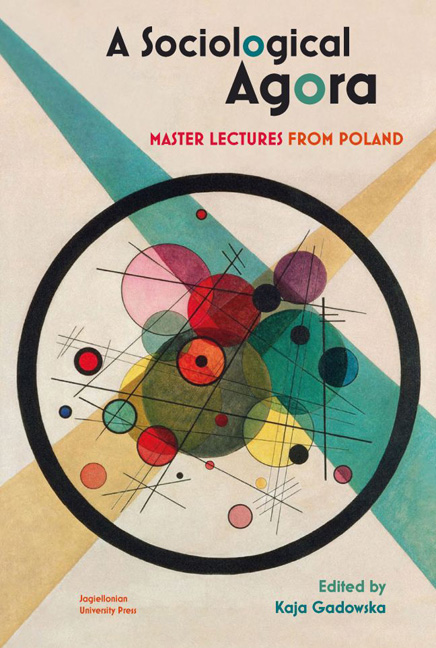Book contents
- Frontmatter
- Contents
- Society in a Time of Pandemia: Postmodern Problems from a Social and Humanistic Perspective
- Trust and Risk in the Time of Pandemia
- The Mythologized Populist Imagination, Carnival Rebellion, and the Fate of Liberal Democracy
- Applied Feminism: Women’s Rebellion and Identity
- On Law and its Interpretative Artifacts
- On Legal Nihilism Once More: Lessons from Poland
- Minima iuridica: Reflections on certain legal (un)obviousnesses
- Community—Meaning What?
- An Essay on Welfare: Problematic and Debatable Issues
- Sources of an Ecclesiastical System Success
- About the Authors
- About the Editor
- About the Translator
- Polish Sociological Association
Applied Feminism: Women’s Rebellion and Identity
Published online by Cambridge University Press: 01 March 2024
- Frontmatter
- Contents
- Society in a Time of Pandemia: Postmodern Problems from a Social and Humanistic Perspective
- Trust and Risk in the Time of Pandemia
- The Mythologized Populist Imagination, Carnival Rebellion, and the Fate of Liberal Democracy
- Applied Feminism: Women’s Rebellion and Identity
- On Law and its Interpretative Artifacts
- On Legal Nihilism Once More: Lessons from Poland
- Minima iuridica: Reflections on certain legal (un)obviousnesses
- Community—Meaning What?
- An Essay on Welfare: Problematic and Debatable Issues
- Sources of an Ecclesiastical System Success
- About the Authors
- About the Editor
- About the Translator
- Polish Sociological Association
Summary
The primary incentives provoking mass protest movements in Poland over the last few years have revolved around three things: threats to democracy and the rule of law, climate change, and changes in the law regulating pregnancy termination. Protests with regards to the last two of these have been assembled (it would be hard to describe them as “organized”) by youth, sometimes quite young people.
“Strike” was the label attached to street marches in the case of climate change, because (among other things) pupils and students were leaving their lessons or lectures for demonstrations—that is, they were striking and not performing expected, routine functions. The 2016 protest against further restrictions on access to abortion bore similar traits: on a set day, women left work early, taking advantage of various legal solutions (most frequently with the permission of sympathetic employers, teachers or lecturers), and went out on the streets of Polish cities and towns. Those who could not go into the streets photographed themselves dressed in black and posted their selfies on social media—thus participating in the physical events.
By 2020, therefore, it was no coincidence that a large role in calling up and influencing the course of events—in reaction to yet another attempt to introduce legal constraints—was played by an organization calling itself the Women's Strike (Strajk Kobiet). Even if the goals and the form of action were far from the original sense of the word (these were neither long-term refusals to work until demands were fully met, nor dealing with work conditions and pay), the word “strike” seemed to reflect the broader sense of the rebellion. After all, this was a kind of “letter of resignation” from the stipulations of the “gender social contract” heretofore in place. This also involved a deep change in especially women-government relations (broadly understood).
Yet before we delve into the most recent demonstrations referring to reproductive rights, there is a need to briefly review the history of legal regulations of abortion in Poland, the actual practice of these laws, and previous reactions anytime that abortion law restrictions were proposed.
- Type
- Chapter
- Information
- A Sociological AgoraMaster Lectures from Poland, pp. 55 - 78Publisher: Jagiellonian University PressPrint publication year: 2023



